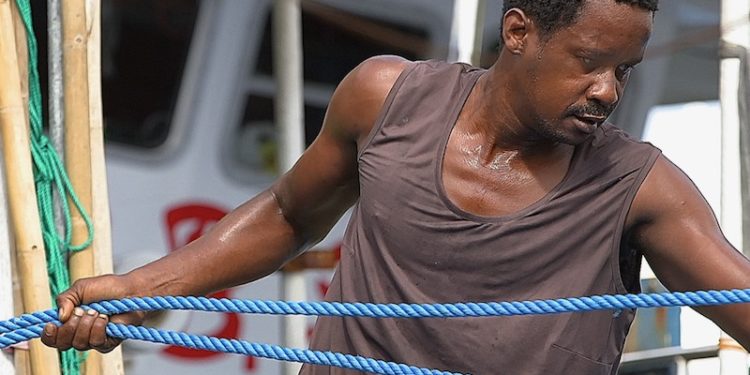The Pêcheurs du Monde film festival came to a spectacular finish on Sunday as prizes were awarded for the outstanding films shown during the festival, held for the tenth time in the French port city of Lorient and dedicated to films from around the world featuring aspects of the fishing industry.
Pêcheurs du Monde closed with eight prizes awarded to films chosen by the jury and the youth jury from the shortlist of fourteen nominated from the 37 films screened during the festival.
Thomas Grand’s and Moussa Diop’s film Golden fish, African fish did particularly well with three awards, among them the public award.
Angry Inuk by Alethea Arnaquq-Baril was awarded the prize for the outstanding full length film by both juries.
A special commendation from the youth jury went to Golden fish, African fish by Thomas Grand and Moussa Diop (Senegal), and the film also received a special commendation by the main jury.
The Chandrika Sharma award went to Ama San by Claudia Varejao (Portugal, Japan)
The public prize was awarded to Golden fish, African fish by Thomas Grand and Moussa Diop (Sénégal)
The youth jury’s prize for a short film went to Il canto del mare by Claudia Neubern. (France)
The festival prize for a short film went to Men of foresail by Jean-Paul Mathelier, (France)
The youth jury’s prize for a full-length film was awarded to Angry Inuk by Alethea Arnaquq-Baril, (Canada), and this film also too the main jury’s prize.
By awarding prizes to these films, the juries stressed the aim of the festival’s acting as a cnduit for the people who resist in order to exist, as well as supporting film creation. The programming has reinforced the original philosophy of the festival; to give the fishing communities the opportunity to speak on global issues, oil industries or NGOs and their good intentions.
Protecting nature is one of the ideas prevalent in such films as Atlantic, Angry Inuk and Golden fish, African fish.
The tenth festival has maintained its original intentions by supporting narrative and creativity, highlighting the struggle of the Inuit community to survive, the encounter between an old fisherman and a soprano singer, Norwegian children happy to work for a few days cutting cod tongues to make a little money.
‘This festival has a magic that brings new strengths,’ said Thomas Grand.
Maria do Mar impressed many people with its modernity, although this moving film was shot in 1930 in Portugal. The music that accompanied the screening of the film was performed by five musicians during the screening.
Both filmmakers and fishworkers also paid tribute to the Festival for being an outstanding venue for encounters and a laboratory for new ideas. When Mathilde Jounot from St Malo in Brittany meets the Senegalese Amadou Khouma, when Thomas Grand meets Richa Hushing from Pondichery in India, new ideas are sparked and new projects come into being.









